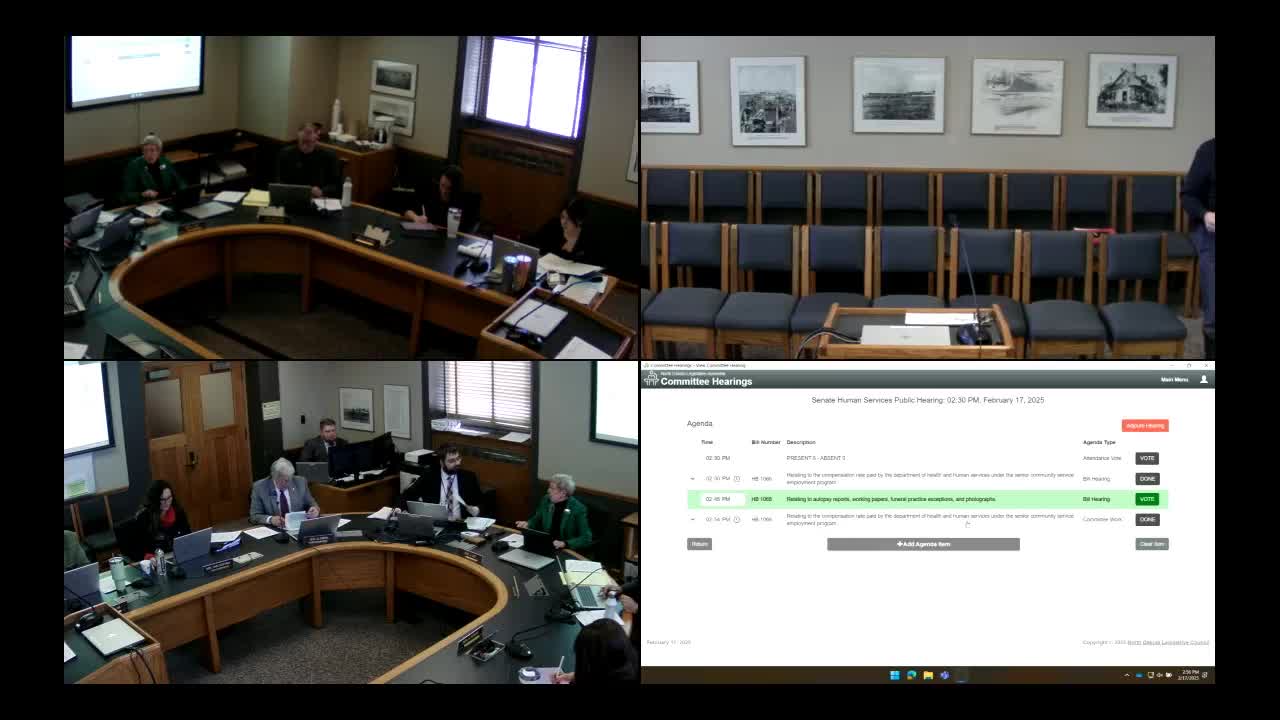Committee consolidates autopsy-record rules and amends funeral-practice language in House Bill 1068
Get AI-powered insights, summaries, and transcripts
Subscribe
Summary
The Senate Human Services Committee advanced House Bill 1068 to move autopsy-record and image-release rules into a single chapter of state law and to amend funeral-practice language so licensed funeral-home employees may perform certain graveside services.
The Senate Human Services Committee voted 6-0 to advance House Bill 1068 after hearing from Kirby Krueger, director of Disease Control and Forensic Pathology at the North Dakota Department of Health and Human Services (HHS).
Krueger said the bill consolidates and clarifies statutes governing release of autopsy records, working papers, photographs and other visual or audio recordings into Title 23 of the North Dakota Century Code, and carries existing authorized releases into the single statute. "What basically what we're doing is we're taking parts of 44-04-18.18 and moving it all over 23," Krueger told the committee.
The bill separates definitions for "notes" and "working papers" and excludes autopsy photographs, video, and audio recordings from the definition of working papers. It clarifies that the report of death — the portion of records that identifies the decedent and the cause and manner of death — becomes public eight days after completion; other autopsy materials remain confidential except under specified conditions.
Amendments adopted in the House clarified additional release conditions, including allowing autopsy reports and working papers to be shared with the Suicide Fatality Review Commission when there is no active criminal investigation and authorizing the Maternal Mortality Review Committee to receive autopsy reports. The bill also carries forward existing confidentiality rules for photographs and visual images, and explicitly states that photographs of a decedent taken by private individuals are confidential when in the possession of the state forensic examiner.
Committee members asked about the role of county coroners and access to records. Krueger explained that North Dakota uses a county coroner system; coroners initiate death investigations and consult with contract forensic pathologists when an autopsy is deemed necessary. He said the state has a contract with the University of North Dakota (UND) for forensic-pathology services and that the state forensic-pathologist position is currently vacant.
On funeral practices, the House amendment arose from a request by a House member representing funeral directors. The amendment clarifies that funeral-home employees (when licensed) may perform gravesite services for cremated remains, aligning funeral-practice rules with what the public can already do.
The committee gave the bill a do-pass recommendation on a 6-0 vote.
